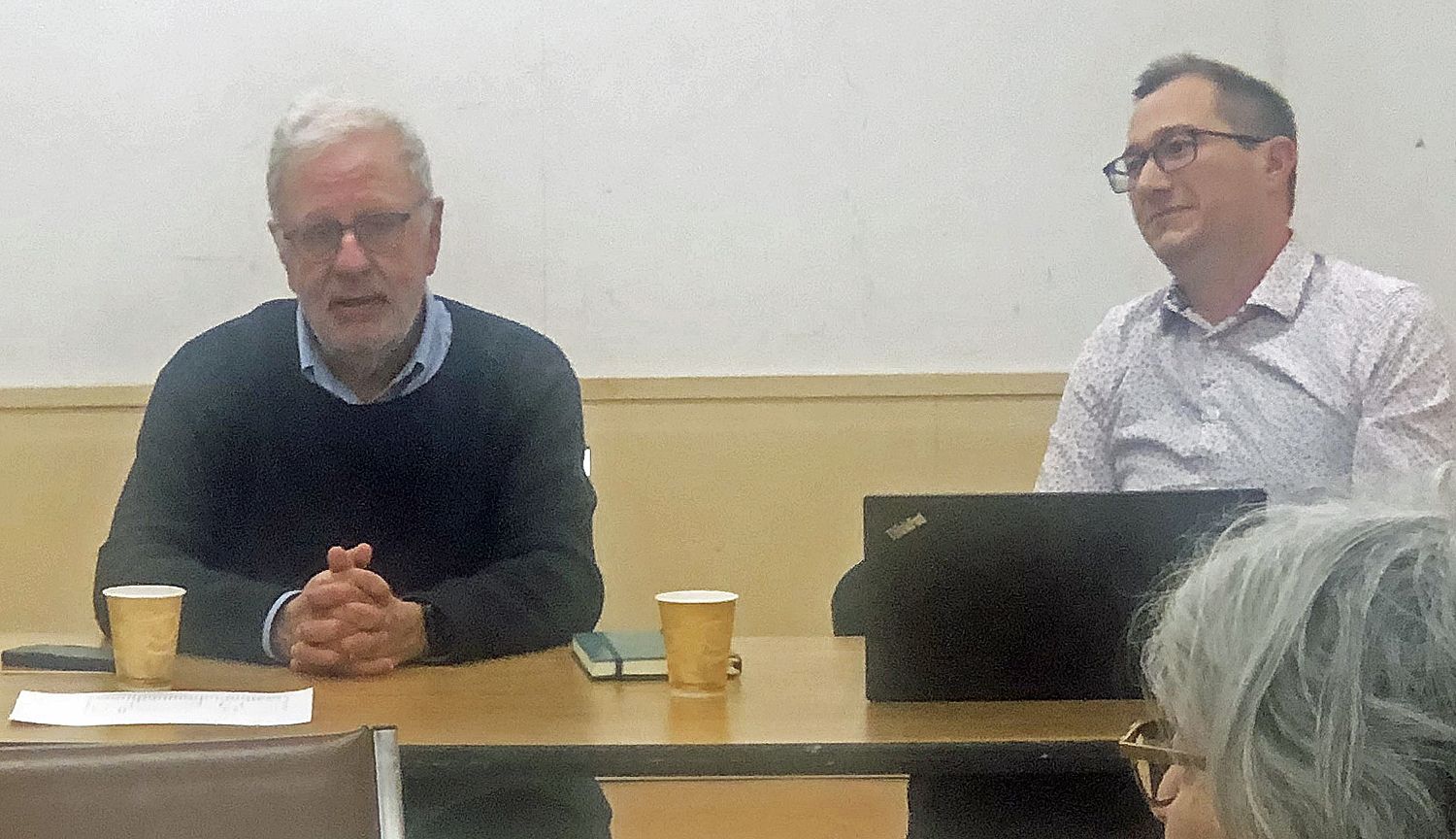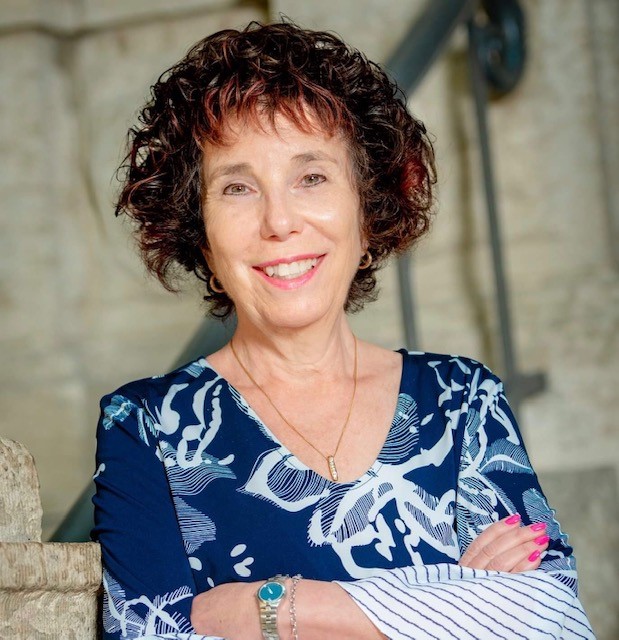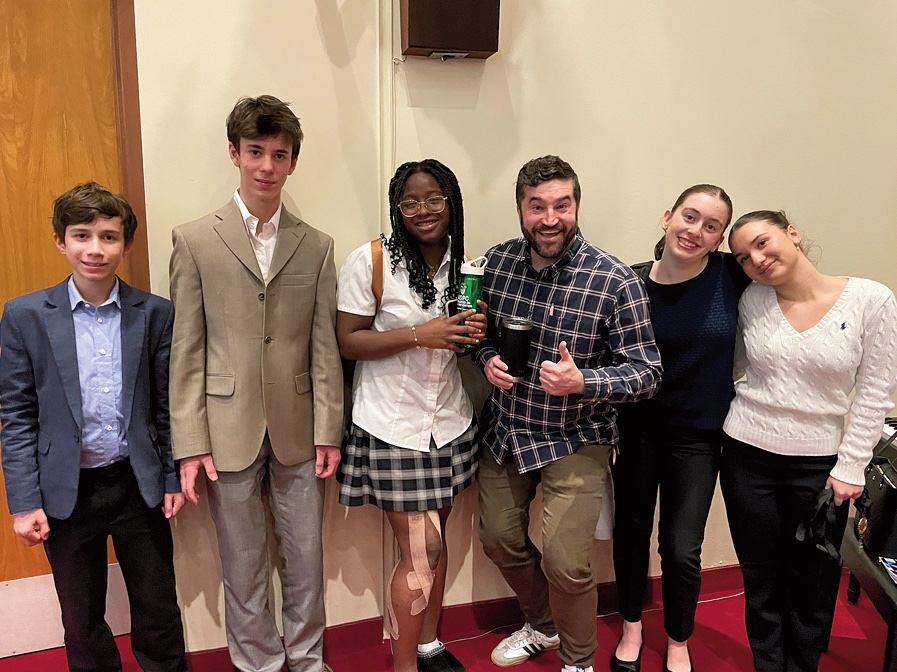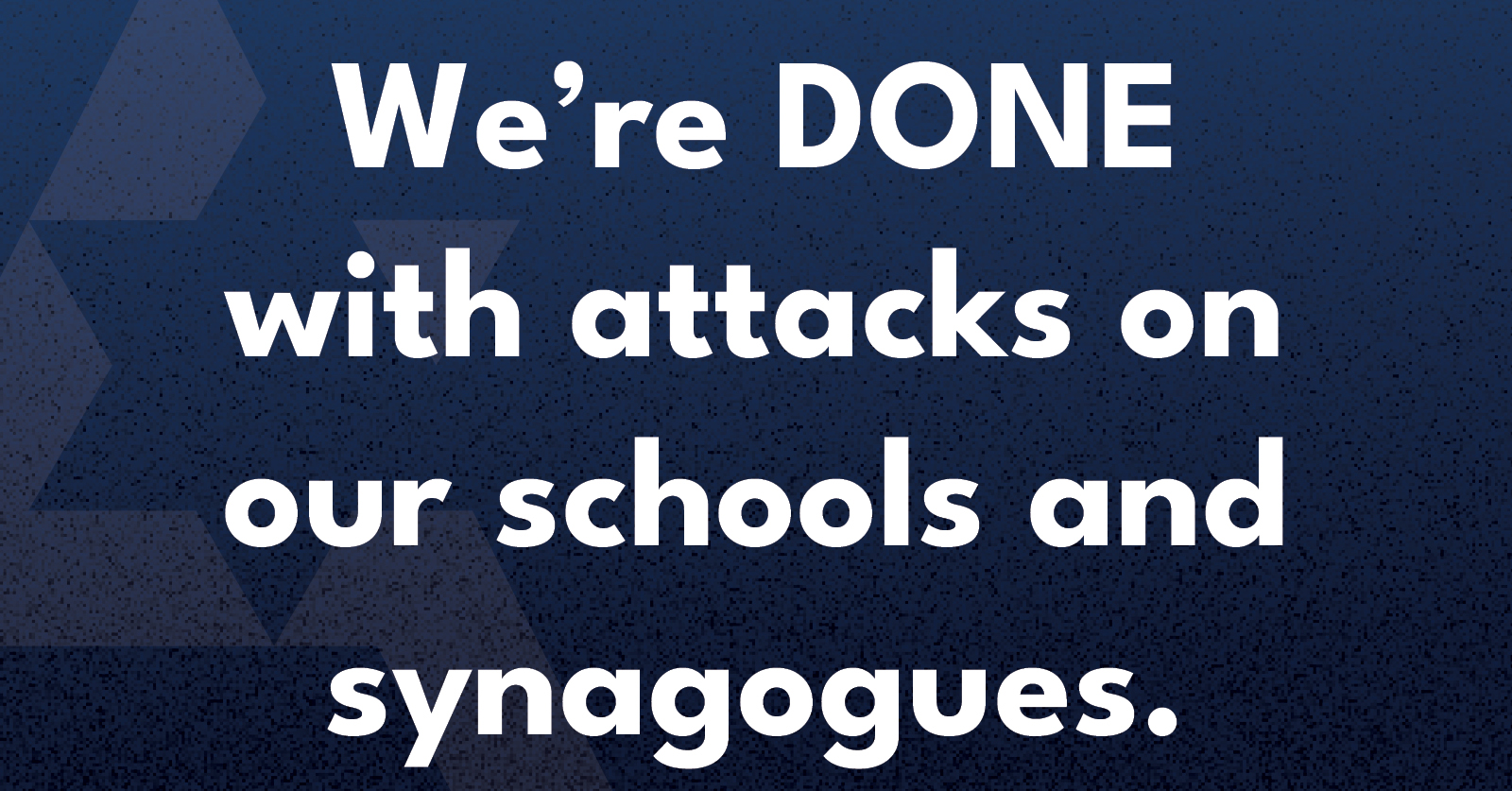Local News
Representatives from The New Israel Fund of Canada come to Winnipeg to speak to Winnipeg audience

By BERNIE BELLAN In 1977, Menachem Begin became Prime Minister of Israel when his Likud Party was able to form a very narrow coalition with two other parties, thus ending 29 years of dominance by Israel’s Labor Party.
That event set in motion a series of changes to Israel’s political, social, and economic landscapes that are still reverberating to this day.
In reaction to the strongly conservative tilt of Begin’s government – which threatened to undo many of the democratic underpinnings of what Israel’s founders had attempted to achieve when Israel became a state in 1948, a group in California created what was known as the New Israel Fund. According to Wikipedia, “The New Israel Fund was established in 1979 in California and is credited with seed-funding ‘almost every significant cause-related progressive NGO in Israel’. Since its inception the fund has provided over US$250 million to more than 900 organizations. NIF states that while its position is that ‘Israel is and must be a Jewish and democratic state’ it says it was among the first organizations to see that civil, human and economic rights for Israeli Arabs is an issue crucial to the long-term survival of the state.’ “
In 1986, The New Israel Fund of Canada was established as a separate entity, with full charitable status in Canada. Since that time, “NIFC has contributed over $10 million to more than 100 organizations in Israel that fight for socio-economic equality, religious freedom, civil and human rights, shared society and anti-racism, Palestinian citizens, and democracy itself,” according to information taken from the NIFC website.
On Wednesday, December 11, two representatives of the New Israel Fund of Canada who were in Winnipeg spoke to a small group of individuals who braved a bitterly cold night to attend an information session held in the basement of Temple Shalom.
Those two individuals were: Michael Mitchell, a former Winnipegger and a longtime member of the board of NIFC; and Ben Murane, the executive director of NIFC. It was the first ever visit for Murane to Winnipeg and he said that one of the reasons he came here was to help make the work that NIFC has been doing in Israel more widely known to Winnipeggers.
Michael Mitchell introduced himself to the audience, saying that “the person who introduced me to the The New Israel Fund was (the late) Vivian Silver” (who, most readers are no doubt aware, was killed in the October 7 massacre).
Mitchell explained that the The New Israel Fund started “in the 1980s in a very small way, funding certain groups as the problems in Israeli society grew more severe.”
The New Israel Fund of Canada adheres very closely to the rules set out by the CRA for Canadian charities, he said. “We have agents in Israel supervising our projects.”
“NIF in Israel has an international board,” Mitchell noted, including Palestinians and representatives from NIF from other countries.
“NIF has money; they’re nimble, they’re quick,” Mitchell said, “to take nascent Israeli organizations and bring them along.”
NIF “has become much more sophisticated these past five years,” he suggested.
He cited as an example of how effective NIF has been in advancing the work of various Israeli peace groups the drastic decline in violence within Israel itself this past year between Jews and Palestinians, as opposed to what followed in the immediate aftermath of the October 7 massacre, when communities like Lod were riven by violent clashes between Israeli Jews and Arabs.
“If you’re in the middle of a war then you have to tamp down the violence between Jews and Palestinians,” Mitchell said. And a lot of the reasons for the decline in that kind of violence is attributable to the work done by organizations funded by NIF, he suggested.
Where NIF has achieved particular success, he continued, “is in organizing on the ground if you’re opposed to the messianic tendencies of the current Israeli government.”
“There’s a much bigger audience – both in Israel and abroad, that wants to see progressive goals achieved,” Mitchell argued.
As for where The New Israel Fund of Canada stands, Mitchell noted that “the Canadian Jewish community is going through what the American and British communities went through 15 years ago, which is to stop waiting for mainstream organizations to represent them.” A lot of new groups have been formed, he noted, such as “Women Wage Peace” and “Stand Together,” both of which helped to sponsor the December 11 event.
“Canadian Jews are not more conservative about Israel than American Jews,” Mitchell suggested, referring to the results of a survey of Canadian Jews for which NIFC was one of the sponsors. (For more on this turn to https://jewishpostandnews.ca/wjn/news-from-syria-shouldnt-distract-from-whats-been-going-on-in-gaza/.)
“There are at least 100,000 Canadian Jews who agree with us completely but are quiet because they don’t want to rock the boat.”
Ben Murane followed Mitchell, giving a lengthy presentation during which he fully outlined what the NIF is all about. He began by noting that “I am also making a pilgrimage to the place that made Vivian.”
Murane was just a youngster when Yitzhak Rabin was assassinated in 1995, he said. “A lot of the stuff I had heard about Israel – about how great it was, wasn’t quite true,” he noted.
Referring to the most recent Likud victory that returned Netyanyahu to the prime ministership in 2022, Murane said: “Let’s flash backward – a government got elected by a slim margin and announced a grand vision for rewriting Israel’s democracy. It was the first wave of what became a global populism.
“We (the NIF) started investing more in Israeli democracy projects.”
Two years ago, Murane reminded the audience, “hundreds of thousands of Israelis were on the streets” protesting what was then the Likud government’s attempt at judicial overhaul – which would have severely limited the power of Israel’s Supreme Court to intervene in cases where civil liberties were at stake.
“We (the NIF) were firmly there,” Murane said, helping Israeli civil liberties organizations to fight back at what the government was attempting to do.
Then, with the events set in motion by the October 7 massacre, Murane observed: “We knew what would happen. They (the Likud-led coalition) would use what happened as an excuse to advance the rest of their agenda.”
But, what happened after October 7 was the almost complete disappearance of many of the structures that held together Israeli civil society, Murane suggested.
Families were forced to evacuate from their homes near the Gaza Strip – with no support given by the government. Instead, groups that had sprung up in 2022 in response to the government’s attempted judicial overhaul stepped in to provide basic supports to those families, with food and housing. The NIF provided funding for many of those groups.
Something else soon became apparent after October 7, Murane said. “It was immediately obvious that the government didn’t care about the hostages…They weren’t their people.” (Many of the hostages came from kibbutzim that were strongly socialist in their orientation and not at all supportive of the right wing government coalition.)
In fact, Murane observed, within Israel’s current political atmosphere, the only opposition to the government is coming from “the organized support for the hostages.”
Something else Murane pointed out about the aftermath to October 7 is that “it wasn’t just Jews hurt on October 7.” There were members of other groups taken hostage, including Thai and Filipino workers, also Arab Bedouins.
The NIF has helped to provide support for evacuees ever since October 7, including to joint Jewish-Arab distribution centres that “have provided aid on a daily basis,” Murane noted.
“It is not Jew against Arab,” he said. “It is those who believe in life as opposed to those who believe in death…We will take care of each other. We will be the first to help civil society deliver aid.”
Murane suggested that there are several key components to what the NIF is attempting to do in Israel, including “pushback, partnership and peace.”
By “pushback,” he meant, pushing back at the narrative that the Netanyahu-led coalition has developed, which is that the hostages will not return until Hamas totally accedes to the demands put forward by the Israeli government.
“Freeing the hostages is a political matter,” he suggested. “The hostage families have been saying to Jews in the Diaspora: ‘If you want to support the hostages, then Bibi has to step down.’ “
As for “partnership,” Murane explained that “there are still many Jewish and Palestinian people who will stand together and find common cause.” He referred to groups such as “Omidm B’yachad” (standing together), whose members have been “protecting trucks bringing aid to Gaza” from Israelis who had been trying to stop those trucks from entering Gaza.
“We want to keep that flame of partnership alive,” Murane said.
He noted that on Yom Hazikaron (Remembrance Day in Israel) over “6,000 Jews and Arabs came together in one place to show compassion for one another.”
When it comes to “peace,” Murane pointed to the example of World Central Kitchen (an organization receiving funding from the NIF), which has been providing food to Palestinians in Gaza. Helping that group is “an act of morality showing people around the world Zionists giving support to their neighbours.”
Insofar as the road to peace is concerned, Murane suggested that “there are ways out of this mess.” He noted that the idea for the Abraham Accords, in which Israel signed peace agreements with Bahrain, the United Arab Emirates, Morocco, and Sudan, in 2020, was actually first advanced by an Israeli peace group known as “MITVIM.”
Murane posited that a “reinvigorated Palestinian Authority” is one component that would lead to advancing the peace process, but “of course the Israeli government doesn’t want to hear about that.”
The NIF has been active in supporting many different Israeli peace groups, Murane noted, including “Breaking the Silence,” which is made up of IDF veterans who want to draw attention to what Israel’s occupation of the West Bank is truly like.
“The way out of this mess is not going to come from the government,” Murane suggested. “It’s going to come from civil society.”
Yet, time is short, he said. There will be another election in Israel within the next year or two. “We have two to three years to see who will win the civil war in Israel: the annexationist camp or the pro-democracy camp,” he said.
To that end, the NIF has greatly increased funding for many Israeli human right groups, Murane noted. (In 2023, the NIF provided $19 million in funding to over 234 different organizations in Israel, of which $1 million came from The New Israel Fund of Canada.)
Local News
Cheryl Hirsch Katz, Jewish Child and Family Service’s longest serving staffer, set to retire at end of the month

By MYRON LOVE “I loved working at Jewish Child and Family Service,” says Cheryl Hirsh Katz, who is due to retire at the end of June. “I have always appreciated the warm and welcoming atmosphere here. I feel that the people working here are my extended family. I am going to miss my colleagues”.
“I have derived great satisfaction over the years to have been able to help many people in our community of all ages through my work at JCFS,” she continues.
After 44 years at the agency, Katz, the longest-serving member of the staff, was given an appreciative send-off at the JCFS’s recent (June 23) Annual General Meeting at the Shaarey Zedek Synagogue.
The daughter of Art and Bess Hirsh, Cheryl grew up in Garden City. She attended Peretz School, then Jefferson Junior High and Garden City Collegiate. She joined the staff of JCFS in 1981, shortly after receiving her Bachelor of Social Work degree.
She earned an MSW in 1990.
“I chose to become a social worker,” she recalls, “because I always wanted to be able to help people.”
Katz was originally hired by JCFS to work with newcomers. After a couple of years, she was given responsibility for looking after the needs of older adults.
“I really enjoyed working in older adult services,” she says. “That is where I spent the bulk of my time at JCFS.”
After ten years as a case worker, she was promoted to a supervisory role. Later, she was also given responsibility for mental health and addictions programming and settlement services, while keeping the older adult files under her purview.
“As a supervisor, I wasn’t directly involved with individual clients,” she points out. “I was more involved with programming. Among the programs for seniors we organized were – for example – sessions on elder abuse, digital storytelling and memory loss.”
She notes that one of the trends she has seen over the last 44 years is that people are living longer and living in their homes longer. A lot more of our clients are living well into their 90s,” she observes. “We have had to continually expand our staff and the services we provide in order to accommodate the growing demands of an aging population.”
She also spoke of the mental health needs of seniors and aging Holocaust survivors.
She says that she has mixed feelings about leaving JCFS. “After so many years working full time, I am going to have to create a new routine,” she comments.
She notes that, now that she is retired, she will have more time to spend with her parents – who are in their 90s.
And then, there are the two dogs to look after. “I will have time now to try new activities,” she says. “ I might learn to play mah-jong.”
She speaks about maybe doing some traveling – although her husband, Murray, is still working full time.
(She and Murray have one daughter, Farah.)
“Retirement may also include some volunteering,” she adds.
It is quite likely, she will be continuing her association with JCFS but in a volunteer capacity.
Local News
Gray Academy students shine in provincial, national debating competitions

By MYRON LOVE It has been another good year for Gray Academy’s high school students who participated in provincial and national debating competitions. The best results were recorded by Grade 9 student Noa Mednikov, who finished fourth overall nationally, fourth in interpretive reading, and fifth in persuasive speaking at the junior National Public Speaking Championship in early May in Vancouver.
Last October, in the Junior Provincial British Parliamentary Championship – which was held at St. John’s-Ravenscourt – Noa and her partner, Raya Braunstein, finished third as a team while Raya placed third in individual debating.
Their fellow Grade 9 student Maxim Moscalenkov tied for first in persuasive speaking in Vancouver, while the Gray Academy team of Gabe Tapper and Aaron Koplovich finished fifth. Aaron also finished fifth in his individual debate.
Earlier, in March, Maxim finished fifth in the Provincial Juniors debating competition, which was held at Balmoral Hall He and his debate partner, Nate Shenkarow, finished seventh among the teams entered. Last November, he and partner, Ethan Tenenbein, finished seventh in the Junior Prepared Tournament – just behind the Gray Academy team of Nate Shenkarow and Jack Kay.
At the senior high level in that competition, the team of Jacob Tenenbein and Jonah Novoseller finished fourth and Jacob was recognized as fifth best in an individual capacity. Jonah and Jacob also paired up to win the Asper Cup, which was held at their home school.
Jacob represented Manitoba at the Junior National Speech Championship in Vancouver in May and, last October, he and Grade 12 Gray Academy students Julie Krozkin and Daniel Bokser represented Canada at an international debating tournament in Bermuda.
Gray Academy’s debating program was introduced by Linda Martin in 2003. She also led the debating teams at Balmoral Hall. In 2011, Martin was succeeded by Gray Academy high school English teacher Andrew Kaplan.
“Andrew has done a wonderful job with the debating program” says Martin, who has a debating trophy at Gray Academy named in her honour, as well as a provincial trophy for best individual junior debater. “Over the years, Gray Academy students have done very well in many local, national and international competitions,” she adds.
About three weeks ago, this writer had the opportunity to sit down with Andrew Kaplan and six of the school’s top debaters while they discussed the benefits of learning how to debate. According to Noah Strauss – who competed in the Junior Provincials at Balmoral Hall in March, public speaking leaves him with a feeling of accomplishment.
“It’s a good skill set to have,” he observes. “It builds confidence.”
“A benefit of being able to debate is that you learn how to convince people that you know what you are talking about,” adds Maxim Moscolenkov.
Raya Braunstein notes that being able to debate is a skill that she expects to be helpful in many university courses which she may choose to take.
As Andrew Kaplan notes, the ability to express yourself has a great impact in whatever career you choose to pursue.
He points out that debating is compulsory at Gray Academy for all Grade 7 and 8 students – and students can continue debating as an option in the higher grades
Of course, competitive debating is not for everyone. For those students who opt to take that path, the journey begins with internal school debate competition – with the top debating teams and individuals qualifying for local tournaments and – potentially – beyond.
Andrew Kaplan reports that a small number of high schools in Winnipeg and southern Manitoba have active debating programs – including St. Johns Ravenscourt, St. Paul’s High School, St. Mary’s Academy, Garden City and Maples Collegiates in the Seven Oaks School Division, St. Maurice (a Catholic School), as well as Morden Collegiate and Dasmesh, a Sikh private school.
Kaplan expresses his appreciation to the Asper Foundation and an endowment spearheaded by the Kives Family for providing funding for the Gray Academy debating program – as well as the Andrew Slough Foundation – which was established by his friends in memory of the outstanding former Ravenscourt student debater and lawyer who passed away suddenly two years ago at the still young age of 38.
I am confident that our Jewish community can look forward to the continued success of Gray Academy’s star debaters and to the continual emergence of future stars as the times goes by.
Local News
Antisemitism has crept into grade school in Canada

Antisemitism in Canada has moved beyond protests and politics; it is now entering classrooms and altering how Jewish children see themselves functioning within them.
A a university student I have observed the experience of my younger brother in grade eight as a Jewish student. Over the past few months, his school has been at the center of several deeply troubling incidents that have made him feel unsafe in our parks, community, and even his school. Swastikas were drawn around the community, in parks and ponds. Additionally, an older man, who claims to be a pro-Palestinian influencer, stood outside his predominantly Jewish school wearing a keffiyeh, filming a video which then circulated between students on TikTok.
This same man later showed up to our local Jewish community center in keffiyeh to allegedly watch his son play basketball where my brother and many of his classmates go for their lessons, basketball games, and Jewish events. These moments made him and his peers feel watched and targeted just for being Jewish. Local political representatives condemned the incidents and raised awareness about antisemitism, but the fear among students didn’t go away. The feeling of being targeted for simply existing has been taught to my brother, something my parents had tried their hardest to escape from.
Most recently, my brother was chosen to represent his school at a regional science fair. When one of the judges arrived wearing a keffiyeh, he froze. For many, including my brother after the incidents he has faced, the keffiyeh represents a political message. But even more so for my younger brother, it is tied to the fear and intimidation he had already experienced. He felt nervous, distracted, and unsure of how to act.
This is not about silencing political expression. It is about a child who came to share his ideas and left feeling uncertain and afraid. It is about the atmosphere forming in Canadian schools, where Jewish students are being made to feel targeted and unwelcome.
His school made an effort to address the incidents, but the impact is lasting. Posts on social media, much can be very vague at times about inclusion cannot fully undo the feeling of being singled out. A kind word from a teacher does not erase the fear that builds when threats are left unspoken but deeply felt.
I am writing this as a sister who watched her younger brother lose a moment that should have been filled with confidence and pride. He deserved to feel safe. So do all Jewish students in this country.
Moving forward, schools must take concrete steps to protect all students. Antisemitism cannot only be addressed when it becomes violent or overt. It must also be recognized when it appears as intimidation, symbolic targeting, or political messaging that creates fear among students. Children should never have to question whether they are safe in their own classrooms or community spaces.
Events that are meant to support and celebrate students must remain focused on them. Individuals who feel the need to bring political symbols or messages into school grounds or children’s events should not be welcomed in those spaces. Schools must make it clear that their environments exist to support learning, safety, and inclusion, not to host agendas that can intimidate or isolate students.
Administrators and educators must develop clear guidelines for identifying and responding to antisemitic behavior in all its forms. This includes strengthening security measures, offering ongoing staff training, and engaging directly with Jewish families to understand their concerns. Inclusion is not a one-time statement. It is a responsibility that must be reflected in everyday decisions and actions. No child should ever feel unsafe or unwelcome because of their identity.
The author is a Campus Media Fellow with HonestReporting Canada and Allied Voices for Israel who lives in Toronto.
